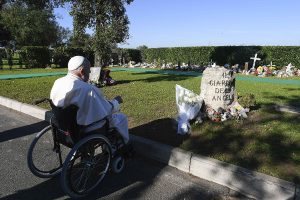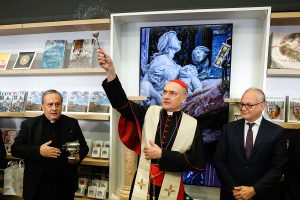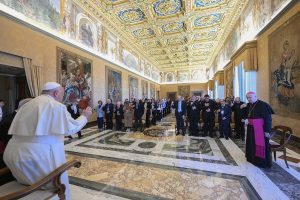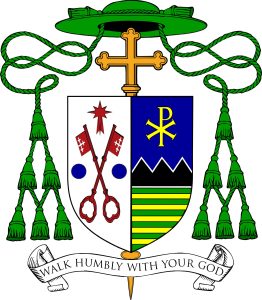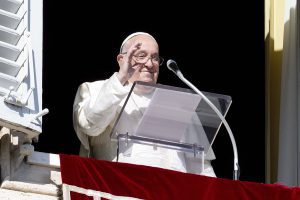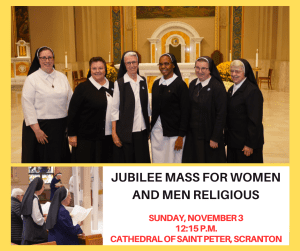WASHINGTON (OSV News) – Voters in Florida, Nebraska and South Dakota Nov. 5 rejected amendments to their state constitutions that would have codified abortion as a right, while other states, including Arizona, Colorado, Montana, Nevada and Missouri, did vote to codify such a right in their constitutions, on Election Day.
Nebraska’s 12-week abortion ban will remain in effect after Initiative 434, which proposed limiting abortion after the first trimester, received more “For” votes than its competing Initiative 439, which would have codified a constitutional right to abortion.

South Dakota likewise rejected a measure to codify abortion protections.
Ten states had 2024 ballot referenda considering abortion either directly or indirectly.
Unlike the other nine states, the Sunshine State requires such measures to reach a threshold of 60% to pass.
However, Amendment 4 failed to reach that threshold, as only 57% of Floridians voted to support it, with 97% of precincts reporting. It became the first ballot measure aimed at expanding abortion access to fail since the U.S. Supreme Court issued its ruling in Dobbs vs. Jackson Women’s Health Organization in June 2022.
That ruling reversed the high court’s previous abortion precedent. Soon after, voters in Ohio, California, Kentucky, Michigan, Montana, Vermont and Kansas either rejected new limitations on abortion or expanded legal protections for it as the result of ballot measures.
In Maryland, voters approved a ballot measure to add “reproductive freedom” — which it defines as inclusive of abortion — to that state’s Declaration of Rights.
A measure in New York called the “Equal Rights Amendment,” Proposal 1, also passed handily and will codify what it calls fair treatment for all people in the state’s constitution. However, New York’s Catholic bishops and other opponents argued the measure was aimed at protecting abortion among other objections, such as unforeseen consequences for parental rights.
“We are disappointed in the decision of the voters to approve this deceptively worded state constitutional amendment and we thank all who voted no,” the New York State Catholic Conference said in a statement Nov. 6. “Despite this outcome, we will continue to fight the good fight for the protection of human rights, the dignity of the human person, the sacredness of all life, the rights of parents, and the preservation of religious liberty.”
It added, “The Catholic Bishops of New York State encourage legislators and state officials to focus on true support for women, children, and families rather than continuing to push abortion as the only option. If you are pregnant or a new parent and you need help, the Catholic Church is here for you. You are not alone.”
In Florida, the state conference of Catholic bishops said in a statement that it is “profoundly relieved at the defeat of Florida’s pro-abortion Amendment 4. This is a positive outcome for Florida and all efforts to promote the flourishing of our state.”
“Though Amendment 4 failed to reach the 60% threshold required to pass, a majority of Floridians voting in the general election supported it,” the statement said. “While significant gains to protect women and preborn children in recent years will remain in place, abortion in Florida will continue at a very high rate under our current laws.”
Current Florida law prohibits most abortions after six weeks, with some exceptions, including scenarios where a woman’s life is at risk.
Lauren Brenzel, campaign director of Yes on 4, which supported the measure, said in a statement, “Despite relentless government sabotage, the state’s promotion of disinformation, and, anti-democratic attacks, the majority of Floridians still voted for Amendment 4.”
“The people have spoken and have sent a clear mandate to the legislature: repeal Florida’s extreme ban,” Brenzel said. “Today’s results are evidence of the strong support for abortion access in Florida and only fuels our resolve to keep fighting government interference.”
The Catholic Church teaches that all human life is sacred from conception to natural death, and as such, opposes direct abortion. After the Dobbs decision, church officials in the U.S. have reiterated the church’s concern for both mother and child and called to strengthen available support for those living in poverty or other causes that can push women toward having an abortion.
The Florida bishops reiterated that call in their statement.
“Much work remains to open hearts and minds to the dignity and goodness of life in the womb and at every stage,” the bishops’ statement said. “We will continue to proclaim in our churches and in the public square the value of every human life and to highlight that there is a better way forward for women, families and society than abortion. Through our many ministries, we will continue to support, encourage and assist pregnant women and young families.
“For those who regret their abortion or abortions, or their cooperation in one, we reiterate that the Lord is eager to forgive, and the Church is ready to facilitate healing,” the bishops’ statement said.
Abortion rates, which began steadily rising in 2017 after a nearly three-decade decline, have further increased in the aftermath of the Dobbs decision. According to the Guttmacher Institute, which tracks abortion data, abortions in 2023 were up 11% over 2020. The 2023 data represents the first full year after Dobbs created a “fractured abortion landscape” as states enact restrictions on, or protections of, abortion access.

